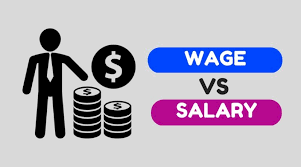Are you stuck weighing the pros and cons of daily pay vs monthly salary? With the rise of work from home opportunities, understanding which payment structure fits your lifestyle and financial goals is essential. Let’s delve into this critical topic and help you make an informed decision.
Understanding Daily Pay and Monthly Salary
Daily pay refers to a system where employees or freelancers receive compensation for each day they work. This system is often found in industries like gig work, service, and some remote jobs. In contrast, a monthly salary guarantees a fixed income over a set period, typically paid at the end of each month, regardless of the number of days worked.
Both payment structures have distinct advantages and disadvantages, making your decision highly personal and dependent on your lifestyle and career goals.
The Pros of Daily Pay
1. Instant Gratification
Daily pay provides immediate financial relief. This is especially helpful if you have pressing bills or unexpected expenses.
2. Encourages Productivity
When your pay is tied to your daily performance, it can motivate you to work more diligently. Many freelancers and gig workers thrive on this immediate feedback.
3. Financial Flexibility
Having money daily makes managing short-term expenses easier. You can allocate funds for groceries, transportation, or other daily needs without worrying about waiting for payday.
The Cons of Daily Pay
1. Lack of Long-Term Security
Daily pay lacks the stability of a fixed monthly income, making it harder to plan for large expenses or save for the future.
2. Management Overload
Receiving money every day requires disciplined budgeting. Overspending can quickly deplete funds, leaving you with little for unforeseen emergencies.
3. No Benefits
Daily pay often comes without traditional employment benefits like health insurance, paid leave, or retirement plans.
The Advantages of Monthly Salary
1. Financial Stability
A monthly salary provides a consistent, predictable income. This is especially advantageous for those with recurring monthly expenses like rent or utility bills.
2. Employment Benefits
Monthly salaries often come with additional perks, such as health insurance, paid time off, and retirement contributions, creating a financial safety net.
3. Encourages Savings
With a set income, saving becomes more structured. You can allocate specific portions of your earnings toward long-term goals, investments, or emergencies.
The Disadvantages of Monthly Salary
1. Delayed Gratification
Waiting for the end of the month to receive your pay can be frustrating, especially if unexpected expenses arise.
2. Less Immediate Motivation
Knowing you’ll receive a fixed paycheck might reduce urgency and productivity for some individuals.
3. Rigidity
A monthly salary often lacks the flexibility that some employees, especially those working from home, might prefer.
Daily Pay vs. Monthly Salary for Work from Home Professionals
The work from home trend has added a new dimension to this discussion. Remote workers often have varied payment arrangements, influenced by their industries and roles.
Daily Pay in Remote Work
Daily pay is prevalent in freelancing, online tutoring, and gig-based remote work. These jobs offer flexibility but require careful budgeting and planning to manage fluctuating income.
Monthly Salary in Remote Jobs
Full-time remote employees in sectors like IT, healthcare, and marketing often enjoy the benefits of a stable monthly salary, aligning with traditional employment perks.
How to Decide Between Daily Pay and Monthly Salary
1. Assess Your Financial Needs
If you need immediate cash flow for daily expenses, daily pay might be ideal. However, if stability and benefits matter more, a monthly salary could be better.
2. Consider Your Career Goals
Daily pay suits freelancers and gig workers who value flexibility, while monthly salaries often align with long-term career positions.
3. Evaluate Your Budgeting Skills
Are you disciplined with money? Daily pay demands meticulous budgeting, while monthly salaries offer structured financial planning.
Practical Tips for Managing Daily Pay
- Create a Budget: Allocate funds for daily, weekly, and emergency needs.
- Automate Savings: Set aside a portion of your earnings for long-term goals.
- Track Expenses: Use budgeting apps to stay on top of your finances.
Strategies for Monthly Salary Management
- Use the 50/30/20 Rule: Spend 50% on needs, 30% on wants, and save 20%.
- Plan for Emergencies: Build an emergency fund to cover at least three months of expenses.
- Set Financial Goals: Use your stable income to work toward milestones like buying a home or starting a business.
Conclusion
The debate between daily pay vs monthly salary hinges on your lifestyle, financial habits, and career aspirations. While daily pay offers flexibility and immediate income, monthly salaries provide stability and long-term security. If you work from home, understanding your needs and goals is key to choosing the payment structure that aligns with your values.
FAQs
What is the primary difference between daily pay and monthly salary?
Daily pay provides income for each day worked, while a monthly salary guarantees a fixed amount at the end of the month.
Which is better for work from home professionals: daily pay or monthly salary?
It depends on your role and preferences. Freelancers might prefer daily pay, while full-time remote employees often benefit from a monthly salary.
Can I save effectively with daily pay?
Yes, but it requires disciplined budgeting and financial planning to ensure long-term stability.
Does daily pay come with employment benefits?
Typically, no. Most daily pay arrangements are for independent contractors who must arrange their own benefits.
Why do some companies prefer monthly salaries?
Monthly salaries simplify payroll processing and foster employee retention by providing stability and benefits.
How do I transition from daily pay to a monthly salary?
Focus on securing a stable, long-term role with a company offering traditional employment terms. Highlight your reliability and skills during interviews.








Leave a Comment